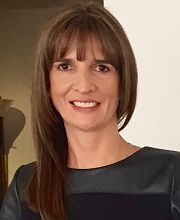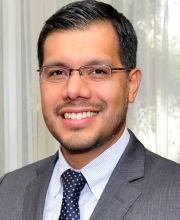The Case of Empowering Traditional Retailers
One powerful way that business can drive inclusive growth and development is to empower the traditional trade: the mom-and-pop shops, corner stores, kiosks, open market stalls and street carts or hawkers that dominate the retail market in many developing countries. Empowering traditional retailers through product- and industry-specific training, broader training as business owners, heads of household, and potentially even agents of change in their communities, and strengthening the business ecosystems in which they operate can enable them to increase their incomes, protect themselves from financial risk, enable them to provide better nutrition, health care, and education for their children, and expand access to valued products and services in their communities.
At the same time, these activities can generate additional revenues for the companies that serve them, reduce dependence on the state, and broaden the tax base. SABMiller Latin America, FUNDES, and the Multilateral Investment Fund have empowered nearly 10,000 traditional retailers in this manner approximately two years into the 4e Camino al Progreso Program and have seen average sales increase by more than 10% (additional, more in-depth impact assessment is planned). With millions of traditional retailers serving low-income communities around the world, the potential for replication and scale of impact by SABMiller, other companies and their development partners is enormous.
Watch Presentation | View Slides | Download paper | Interview
Author: Catalina Garcia

Catalina Garcia is the Director of Communications and Sustainable Development for SABMiller Latin America, where she is responsible for implementing social responsibility programs, leveraging the sustainability agenda in social and environmental dimensions, and executing global communications strategies that drive corporate success. Ms. Garcia has spearheaded signature programs such as the “4e, Path to Progress” program, a $23 million commitment to help small retailers (mom and pop shopkeepers) to enhance their business and interpersonal skills, as well as their leadership potential in order to make their business grow and help them to improve their business environment. Currently in seven countries of SABMiller Latin America, the program has become a corporate model that is being replicated in Africa and Europe.
In addition to sustainability programs management, Catalina leads SABMiller's Latin America work on communications and public relations, where she sustains the alignment of the external and internal communications that ensure a real sense of community across the subsidiaries and functions in the region. She also oversees the regional ethics compliance, promoting the ethics mandates across the businesses. Furthermore, her knowledge has launched her to be keynote speaker and panelist at different forums such as: the World Forum Lille-France, the SROI (Social Return of Investment) Network Conference Milan, Shared Value Leadership Summit, Global Partnerships Week, USCCF (US Chamber of Commerce Foundation) Women´s Path to Empowerment series, among others.
Prior to joining the SABMiller Latin America Hub Office, Ms. Garcia was the Director of Bavaria (SABMiller subsidiary in Colombia) Foundation, accountable for guiding and empowering entrepreneurs to create both social impact and business value. In 2007 she joined Cerrejon, a Coal Mine in Colombia owned by BHP Billiton, Anglo American and Xstrata as Director of Communications and Public Affairs. She also held positions in marketing at Dow Chemical, in sales and corporate social responsibility at IBM, and was the Managing Director at Llorente & Cuenca, a communications multinational consultancy firm. Catalina holds a B.S. in Industrial Engineering from Javeriana University, a degree in Management from Inalde Colombia, and a degree in Government Affairs from Los Andes University. In addition, Ms. Garcia served as a member of many global boards such as: IBM Women´s Diversity Network Group, Women´s for Colombia Foundation, Inversor Impact Investing Fund, CCRE (Colombian Center for Social Responsibility) and United Way Colombia.
Contributor: Beth Jenkins
 Contributor: Beth Jenkins
Contributor: Beth Jenkins
Beth Jenkins is Insights Director for Business Fights Poverty and a Senior Fellow at the CSR Initiative (CSRI) at the Harvard Kennedy School. She has fifteen years’ experience researching and advising on inclusive or base-of-the- pyramid business models and cross-sector partnerships in various positions in the public, private, and non-profit sectors and academia.
Most recently, she served concurrently as a Non-Resident Fellow at CSRI and Consultant to the International Finance Corporation (IFC), where she provided strategic advice and implementation support for the start-up phase of IFC’s Inclusive Business Models Group. Previously, she directed CSRI’s Economic Opportunity Programme, analyzing, documenting, and disseminating inclusive business activity together with partners such as the International Finance Corporation, United Nations Development Programme, World Business Council for Sustainable Development, and NGOs and companies around the world. She is widely published. Earlier in her career, Beth was responsible for developing and disseminating risk management concepts and capabilities at Booz | Allen | Hamilton, with special emphasis on the strategic risks companies face as a result of social, environmental, and international development issues. She also spent five years working on base-of-the-pyramid business models in the information and communications technology and housing sectors at the World Resources Institute and Ashoka. She is a graduate of Yale University and the Harvard Kennedy School.
Contributor: Eflid Torres
 Contributor: Elfid Torres
Contributor: Elfid Torres
Elfid Torres has dedicated his entire professional career to betting on business and entrepreneurship as the main driver for Latin America’s economic and social development. In 1996, he arrived at the Mexico office to develop research that today has helped FUNDES remain at the forefront of knowledge on both MSMEs and business development. He has applied this knowledge when consulting on business strategy for large companies and public policy for governments. Now based out at corporate headquarters in Costa Rica, Elfid leads the firm’s strategic shift as FUNDES looks towards 2020.
By playing a role in market expansion and developing regional projects with large and recognizable corporate clients, Elfid has been an integral part of the growth experienced at FUNDES during the last few years. His résumé reflects his two great passions: promoting business development and encouraging innovation.
Elfid is a Mexican national and holds a Masters in Development Studies from East Anglia University in the United Kingdom and an MBA from the prestigious INCAE Business School in Central America.